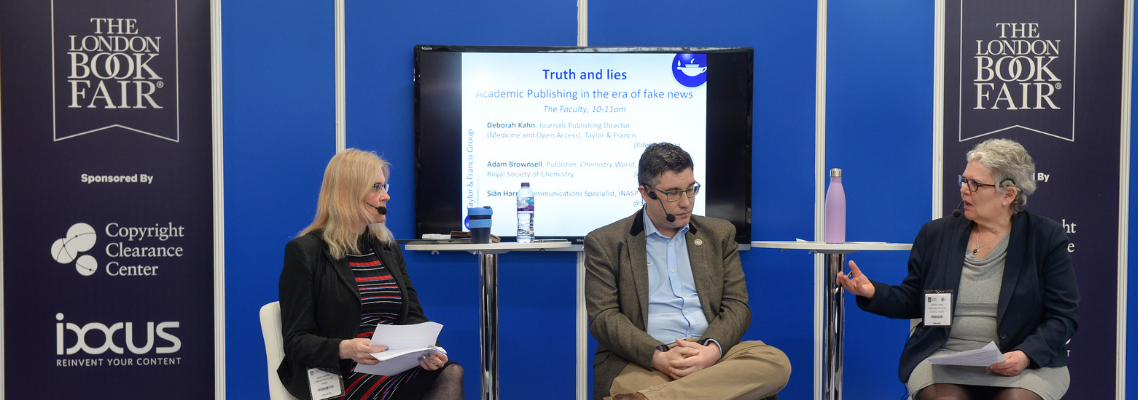Debate over Plan S continues
Plan S continues to dominate discussion in the world of scholarly publishing and was one of the key themes at last week’s Research and Scholarly Publishing Forum. In his keynote speech, David Sweeney – Executive Director of Research England and Co-Chair of the Plan S Implementation Committee – noted the volume of feedback received during the plan’s consultation exercise, and insisted that the intention was to work with, rather than against, publishers. He also discussed plans for cOAlition S to commission a gap analysis of open access journals to find fields and disciplines where they are lacking, and to collectively offer incentives in those areas for establishing new OA journals or for flipping existing ones; a report issued the previous week by the Institute for Scientific Information, using data from Web of Science, had raised precisely this issue, asking also how the positions of unfunded authors and those in emerging research regions might be protected.
Much of the feedback from publishers on Plan S, though embracing its ideals, has been critical of its proposed implementation, with its rejection of hybrid journals as non-compliant with its principles and insistence that such journals should flip to full open access proving particularly controversial. Describing this decision as ‘disappointing and short-sighted’, Springer Nature argued that the subscription component of hybrid journals offered ‘an ongoing, important, successful, and proven, mechanism for increasing OA adoption’, particularly as part of ‘Publish and Read’ deals. It also offered six recommendations that it believes are necessary for Plan S to be delivered, including the use of competition and market forces to ensure ‘reasonable’ APC levels, and cross-party collaboration on finding sustainable solutions for highly selective journals and non-primary research content in journals. SAGE, meanwhile, though accepting the core principle of Plan S, that hybrid journals should not be compliant in the long term, urged a long transition period, accompanied by a ‘meaningful and transparent transition plan’. The European Physical Society similarly warned of ‘irrecoverable damage to the European academic publishing system and, in particular, to not-for-profit publishers’ if implementation were rushed.
Lively debate at the Faculty
Alongside the Research and Scholarly Publishing Forum, the Faculty was once again the place to be for academic publishers at this year’s London Book Fair. Three full days of free talks began with Chris Smith and Bec Evans of writing productivity start-up Prolifiko, who shared insights into the life stages of academic authors, drawing upon their recent research in the field. Other highlights included sessions on the increasing role of preprints, the importance of scholarly publishing in the fight against fake news, and a discussion of how publishers might support the growing interest in the digital humanities; meanwhile, a session on Scholarly Publishing Through the Brexit Lens found one positive amidst the generally bad news – the fall in value of the pound has helped several publishers with exports.
Springer launches ResearchGate sharing pilot
While other publishers – most notably the Coalition for Responsible Sharing, comprising the American Chemical Society, Brill, Elsevier, Wiley, and Wolters Kluwer – have attacked ResearchGate for its hosting of copyrighted content, Springer Nature has taken a different approach, having been engaged in discussions with the scholarly research network since 2017. In April last year, those discussions resulted in an agreement between ResearchGate, Springer, Cambridge University Press, and Thieme, to work together on the sharing of articles in ways that protects the rights of authors and publishers. This month they have borne further fruit with the announcement of a pilot sharing scheme lasting at least three months, during which full-text articles published in 22 selected Nature journals since November 2017 will be rolled out to researchers’ ResearchGate profiles.
In brief
Wiley has announced a three-year combined open access and subscription agreement with the Norwegian Directorate for ICT and Joint Services in Higher Education and Research that includes open access publishing and reading rights to research articles in approximately 1,500 academic journals.
IntechOpen, which recently published its 4,000th open access book, has appointed two STEM program Directors, Peter Mitchell and Richard Murray; both join the company from Wiley.
De Gruyter has flipped its mathematics journal Advances in Nonlinear Analysis to open access.

Alastair Horne is a PhD student at the British Library and Bath Spa University.

